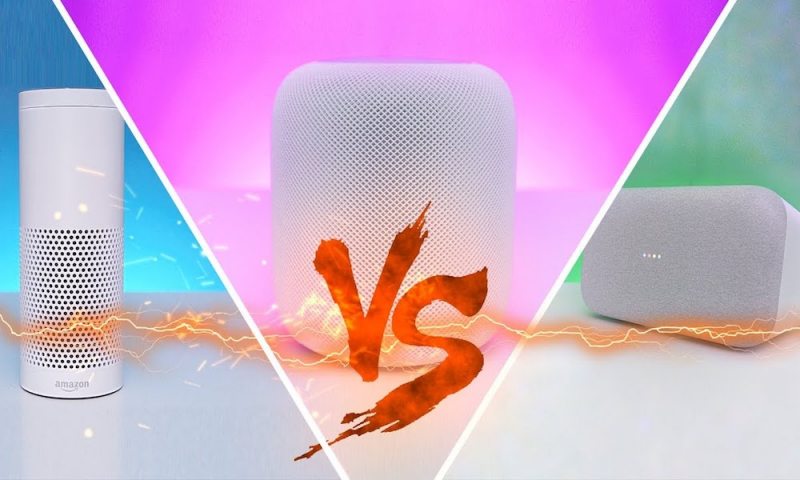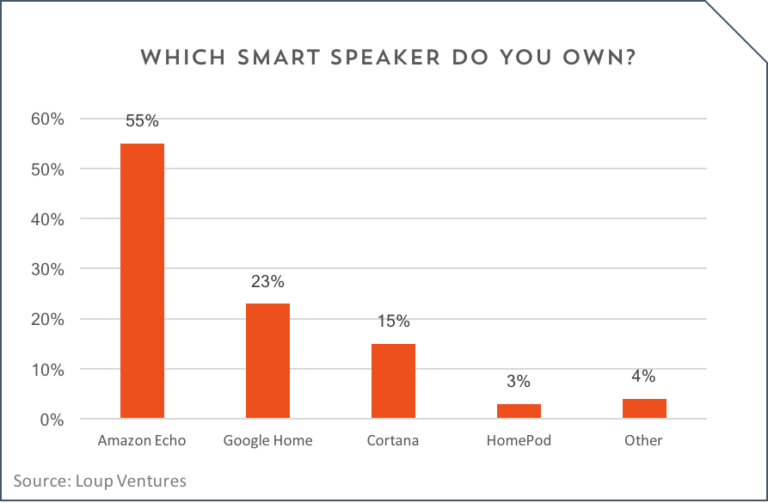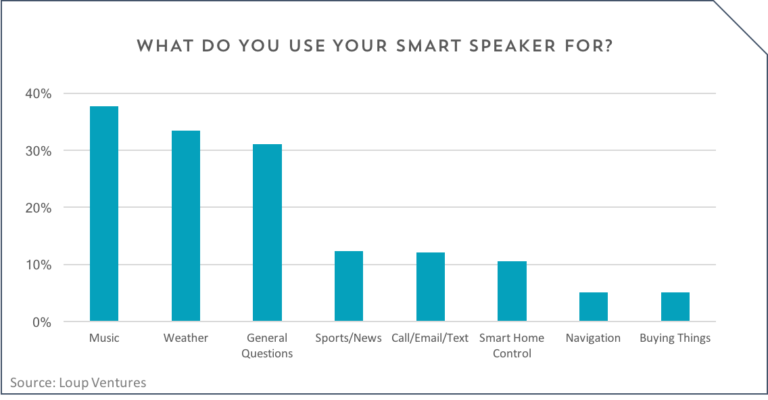
Despite their array of artificial intelligence (AI) and virtual voice-driven assistant capabilities, a new survey out this week found that the majority of smart speaker owners use their devices almost exclusively to carry out basic tasks (like listening to music).
Though 89 percent of owners indicated they’re still satisfied with their purchase.
The data, which was analyzed in a report published by Loup Venture founder and former Piper Jaffray analyst, Gene Munster, was collected via a poll of 520 U.S. consumers — 31 percent of whom indicated that they owned a smart speaker, be it an Amazon Echo, Google Home, Apple’s HomePod, or other device featuring AI capabilities.
Of that 31 percent, the survey found that just over half (55 percent) of active smart speakers are Amazon Echo devices, 23 percent are Google Home devices.
Surprisingly enough, Apple’s HomePod (which has only been available since earlier this February) has already managed to capture 3 percent of the market.

Interestingly, another 15 percent of respondents said they used a product reliant on Microsoft’s Cortana virtual assistant, which is impressive given Cortana hasn’t enjoyed nearly the amount of publicity as its competition. The Harman Kardon Invoke is just one example of a Cortana-powered alternative to the Apple, Google, and Amazon monopoly.
With market penetration at around 30 percent, Munster says the results of the survey “roughly resemble the current market landscape” — save for what he believes is a “slight overrepresentation” of Cortana users, relative to an underrepresentation of Echo users.
High-Satisfaction, Low Expectations
While Munster acknowledged the burgeoning nature of the market, his survey most interestingly found that of those who own a smart speaker device, 89 percent report satisfaction with it.
Moreover, that already impressive metric can be even further broken down, with 59 percent of respondents saying that they’re “satisfied” and the remaining 30 percent saying they’re “very satisfied” with their purchase.
Such high satisfaction, however, could be a reflection of user’s “relatively low expectations,” Munster added, noting how the survey revealed that most users don’t expect much from their smart speakers in the first place.
It found top three smart speaker uses were playing music, checking the weather, and asking general questions — in that order.

Less than 15 percent of respondents said they’ve used other functions such as placing a call, text, or controlling smart home accessories. Just 5 percent reported using them for tasks like pulling up directions or making an online purchase.
“The top use cases for smart speakers today make sense because they are well defined and they work consistently,” Munster noted, adding that “This works really well for simple Google-able questions or fetching info from a weather app, but as the use cases broaden, it is not always clear where to send a query.”
Just Getting Started
Munster noted that the survey findings represent a mere “stepping off point” for what could, over the next few years, grow into a thriving market of AI-powered hardware and software devices.
Indeed, smart speaker usage patterns could evolve substantially, too, as tech giants like Apple and Google work to enhance their respective software/hardware ecosystems — potentially even paving the way to a ‘paradigm shift’ in how users interact and engage with the world around them.
from iDrop News http://ift.tt/2olZBuI
via IFTTT
No comments:
Post a Comment
Note: Only a member of this blog may post a comment.